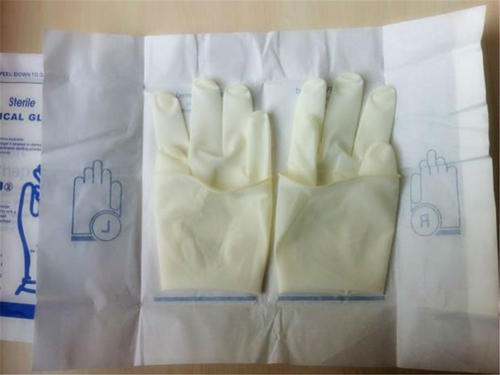Contact: Manager Zhang
Telephone: 13115255999
Fixed line: 86 0517-84746999
Fax: 86 0517-84743098
Address: 200 meters south of Hongqiao, West of Old Huaisi Road, Yugou Town, Huaiyin District, Huai'an City
Website: www.hagcgm.com
In hospitals, latex products are almost ubiquitous: disposable latex gloves, urinary catheters, drainage tubes, sphygmomanometer balloon bags, elastic bandages, medical liquid bottle stoppers, medical tapes... Allergy triggers are related to contact frequency. Meta analysis shows that medical care Latex-induced type I hypersensitivity reactions among personnel are 3-3.5 times higher than those in the general population. A survey of 1469 nurses in my country found that 16.9% of nurses had latex glove allergy, while in foreign surveys, 10-17% of medical staff had latex allergy.
Obviously, latex glove allergy has become an occupational disease that doctors and nurses have to prevent.

Nevertheless, it is difficult to avoid latex allergy in British and American hospitals. The current research does not have strong evidence to support that once a hypersensitivity reaction occurs, medical staff must leave the hospital. Instead, it is recommended to transfer posts or use the following protective measures:
1. Use powder-free, low-protein latex gloves;
2. After taking off the gloves, immediately wash your hands with a mild hand sanitizer/soap and dry your hands completely;
3. Before putting on gloves, wait until the hand skin is completely dry;
4. Those with sweaty palms can wear sweat-absorbing gloves first, and then latex gloves;
5. Try to shorten the time of wearing gloves each time;
6. Avoid eating chestnuts, kiwi fruit, bananas, avocados and other foods that cross-react with latex.
7. If occupational exposure is inevitable, try to avoid unnecessary latex exposure in life to reduce the frequency of exposure. Common daily necessities containing latex include keyboard membranes, cleaning gloves, non-slip mats, condoms, balloons, glue/tape, bottle mouths, rubber shoes, rubber toys, etc.
8. For medical nurses who have had an immediate latex allergy (type I hypersensitivity), colleagues around me also recommend using powder-free-low protein gloves to avoid inhalation contact.
Another point is extremely important. Please go to a regular latex glove manufacturer to buy it to avoid quality problems.